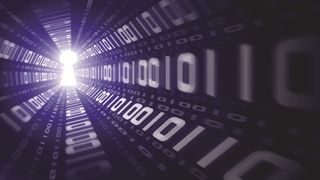Why you should be outraged by the government's web of privacy lies
We can't let this privacy scandal slide

Back in 2009, UK monitoring agency GCHQ flatly denied that it was "developing" technology to monitor what people do online.
With hindsight - and with all credit to TechRadar commenter Ken Paton, who said it at the time - the words were carefully chosen.
GCHQ wasn't developing technology, because the technology was already up and running; it had no plans "to store centrally all communications data in Britain" because the NSA was storing the data in the USA. Everything you do online can be intercepted.
Despite this, the government has pressed on with plans for its so-called Snooper's Charter, AKA the Communications Bill, which has risen from the dead despite being shot down previously.
There's an obvious question here: why is the snooper's charter necessary when the NSA is doing everything short of monitoring our brainwaves?
Location, location, location
There are two simple answers to that. The first is that the law would legitimise what's already happening.
And the second is that the NSA doesn't store the data long enough - or at least didn't back in 2010, when the sheer volume of data meant it couldn't be kept for more than a month.
Get daily insight, inspiration and deals in your inbox
Get the hottest deals available in your inbox plus news, reviews, opinion, analysis and more from the TechRadar team.
The snooper's charter would get ISPs to keep comms data for a year, enabling retrospective trawls for longer.
The government has attempted to smear opponents of the Bill as terrorists and paedophiles, but there are legitimate concerns.
There's the question of who can access the data, and for what purpose: the Guardian's ongoing revelations about the NSA and GCHQ make it clear that the necessary checks and balances to protect the general public simply don't exist, and in the UK we've learnt again and again that powers granted for anti-terrorism and other serious crimes are often used for trivia, such as monitoring parents' applications for school places.
Just this week an investigation was launched into RSPCA, a charity, over allegations of access to the Police National Computer.
It's important to keep some perspective here. The NSA probably won't send the black helicopters round if you Google terrorist-related activities - the much-cited story of the couple whose Googling of "pressure cookers" and "backpacks" led to a police visit this week turned out to be an "idiot employer" story, not a "scary feds" one - and there's no need to hide inside a Faraday cage just yet.
However, that doesn't mean we shouldn't be outraged. The whole system has been carefully structured to evade the law, with the US doing the UK's dodgy deeds and vice-versa - and that means it's wide open to abuse.
Our politicians tell us again and again that if we have nothing to hide, we have nothing to fear - but they have lied again and again to conceal the existence of mass surveillance on a truly enormous scale.
They have something to hide - and that's something we should fear.
Writer, broadcaster, musician and kitchen gadget obsessive Carrie Marshall (Twitter) has been writing about tech since 1998, contributing sage advice and odd opinions to all kinds of magazines and websites as well as writing more than a dozen books. Her memoir, Carrie Kills A Man, is on sale now. She is the singer in Glaswegian rock band HAVR.
Most Popular


